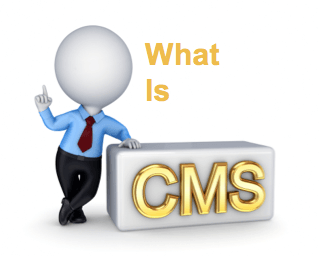
It’s been a long time we are seeing the importance of API and CMS is increasing day by day, they are not only important for websites but also attaining a very significant role in mobile app development too.
The first and foremost question is what an API and CMS, so first let’s have a look into the traditional definitions of these.
API:
API, an abbreviation of application program interface, is a set of routines, protocols, and tools for building software applications. The API specifies how software components should interact and are used when programming graphical user interface (GUI) components. A good API makes it easier to develop a program by providing all the building blocks. A programmer then puts the blocks together. By Webopedia
CMS (Content Management System):
A CMS is a computer application that allows publishing, editing and modifying content, organizing, deleting as well as maintenance from a central interface. Such systems of content management provide procedures to manage workflow in a collaborative environment. These procedures can be manual steps or an automated cascade. CMSs have been available since the late 1990s.
CMSs are often used to run websites containing blogs, news, and shopping. Many corporate and marketing websites use CMSs. CMSs typically aim to avoid the need for hand coding, but may support it for specific elements or entire pages. By Wikipedia
Now let’s try to understand this in another way, take an example of a local restaurant, you check in the restaurant, consider food as a data, kitchen as a database and chefs/waiters are APIs. Assuming every customer will be having a menu to place an order. The customer will place an order to the waiter, he will note it down and submit to the chef for delivery.
The main role between the customer and food was played by the combination of tasks performed by the waiter and the chef. This example shows how API’s works in its simplest form.
Use of APIs:
API’s primarily used to build dynamic websites and mobile applications by taking the benefit of integrating the original app with the 3rd party API to provide the desired outcome to the end-user. Let’s take a look at some of the simple yet very famous API’s available today in the market.
Facebook Marketing API:
The Facebook Ads API is programmatic access to manage your ads campaigns, audience and reports.
API Reference Link: https://developers.facebook.com/docs/ads-api
Twitter Search API:
The Twitter search API allows you to fetch recent or popular tweets.
API Reference Link: https://dev.twitter.com/rest/public/search
Foursquare Search Venue API:
This API returns the list of venues near the current location, optionally matching a search term.
API Reference Link: https://developer.foursquare.com/docs/venues/search
Google Map API:
This API help website and mobile app developer to add Google Maps on the targeted website and mobile application.
API Reference Link: https://developers.google.com/maps/
YouTube API:
The YouTube API’s let the website and mobile developer fetch specific video/video channel videos etc on specific web page or on the mobile app.
API Reference Link: https://developers.google.com/youtube/
Apart from above-given examples, we can develop our own custom API in order to perform a specific function or in order to fetch some specific information/data.
The Future of API:

The future of API is where the development team can integrate many APIs parallels in an effective way. This also brings out the benefit of this in developing and implementing effective business automation process and both business and non-business usage.
Now as per an estimate there are 10,000+ (approximate) public API’s available and now it’s time to develop a universal structure to program them easily on both web and mobile applications.

What is CMS
CMS as defined as a content management system which helps the end-user to maintain, edit and update the website and mobile app content and associated items. By using CMS the end-user can create, edit and publish updated data without having much dependability on the development team. By using the CMS it decreases the requirement of hand code up to a significant number.
Headless Content Management System takes this a step further, providing enhanced flexibility and agility in managing content, especially in decoupled architectures where the front-end and back-end are separate entities. Benefits of Headless CMS include easier content updates, improved developer productivity, and the ability to deliver consistent experiences across multiple channels and devices. With more successful headless CMS use cases emerging, companies are adopting it to meet diverse business needs, taking advantage of its flexibility in content updates and multi-channel consistency.
Today most of the websites and mobile applications use Open Source CMS or custom CMS to run and maintain their websites and mobile applications.
Open Source CMS:
Open source CMS is free to use and can be installed and managed by you. Some of the famous Open source CMS are:
- WordPress
- Joomla
- Drupal
Custom Frameworks:
The custom frameworks are the perfect way to build custom websites or mobile applications. You can develop a simple 2 pages website with these frameworks or can also develop a very complex financial website etc.
In the case of a custom framework, every page is hand-coded and in order to make any functional changes to the pages majorly it requires code-level changes. The custom CMS is highly recommended for mobile application admin data management because we can implement a clean and robust custom CMS in an effective way to track and analyze day to day app performance.
Some of the famous custom frameworks are:
- CakePHP
- Codeigniter
The future of CMS:

Currently available Open source and custom frameworks provides a very effective process to manage, edit and publish the content and associate properties but if we look into the future we would be in need of content management system which can leverage the content which is placed on social media platforms and how it streamlines its access with various blog contribution groups.


%201-1.webp?width=148&height=74&name=our%20work%20(2)%201-1.webp)


.png?width=344&height=101&name=Mask%20group%20(5).png)















